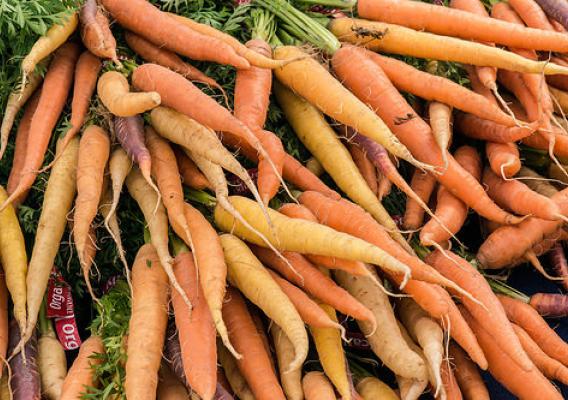More and more farmers are entering the organic market. Just last year, the number of certified operations in the U.S. grew by almost 12 percent - more than double the growth rate of 2014. So how do farmers, ranchers, and food processors make the transition to organic? We talked to one farming family about their experience, learning how they used USDA programs to help with the transition process.
Conner Voss got his family farm certified organic in 2015. Diggin’ Roots Farm is a diversified fruit, vegetable, and livestock operation in Molalla, Oregon, midway between Portland and Salem. “We sell our product direct – through a CSA, at a local farmers market, and direct to restaurants – and our customers kept asking about our growing practices,” said Conner. “We wholeheartedly believe in the practices and philosophy of organic production, and certification offers a quick and easy starting place for our conversations with our community. Beyond that, being certified is a way for our small farm to actively engage in the larger organic movement by helping define and shape what organic is.”










